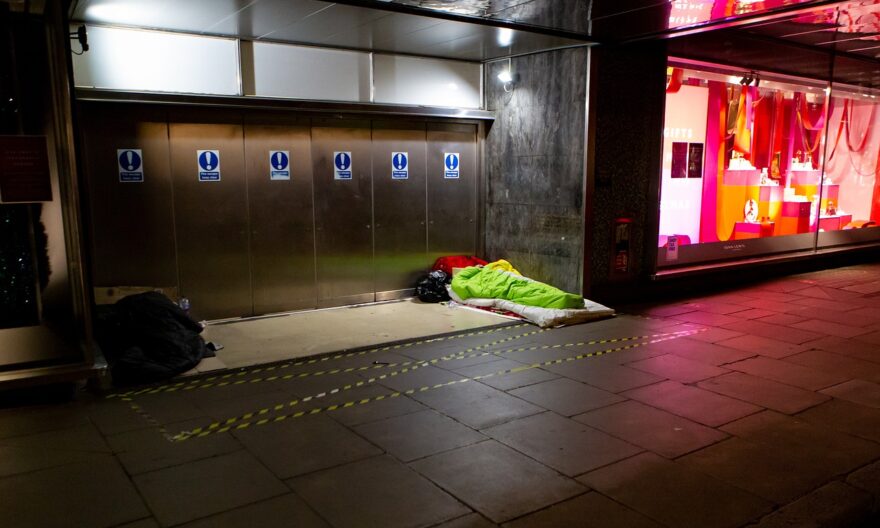
According to recent data, homelessness in England has surged by 6.8% compared to the previous year, with a significant number of people placed in temporary housing. The new data comes from the latest government figures, which indicate a 10.5% increase in overall spending on homelessness since the fiscal year 2021/22, with many councils reporting higher costs.
Between April 2022 and March of the current year, a staggering 298,430 households in England faced homelessness or were at risk of homelessness, including 104,460 families with children. This information also reveals that the number of households residing in temporary accommodations reached 104,510, marking an all-time high.
The data, released by the Department for Levelling Up, Housing and Communities (DLUHC), also shows a 27.4% increase in the number of people facing homelessness due to “no-fault” eviction notices, totaling 24,260 individuals. During the same period, local authorities observed a 30.5% increase in the number of people assessed as sleeping rough.
Despite the Conservative government’s pledge to address rough sleeping and provide substantial funding, there are fresh concerns about whether the efforts are enough.
The problem is particularly acute in London, where there is a £500 million budget shortfall for councils trying to combat homelessness. Additionally, the DLUHC has reported record-high spending by councils across England with more than 2.4 billion spent in 2022/23
More than £1.7 billion was allocated to temporary accommodations, with the North West and the North East particularly affected, with Manchester having one of the highest homelessness rates in England.
The most significant increase in homelessness was recorded in Liverpool, with a 341% rise in costs in just one year. Warrington saw costs rise by 210%, while Darlington and Wolverhampton witnessed their costs double. In Hastings, a coastal town in the southeast, the situation is also pretty grim, with hundreds of households residing in temporary accommodation.
Many councils are struggling to manage the overwhelming caseload associated with the homelessness crisis, and Various charities and the shadow minister for homelessness have called for increased housing benefits to address the urgent housing crisis.
These developments highlight the need for a more robust approach to homelessness from political parties, as the Labour Party positions itself as a potential alternative government that may take a more resolute stance on this issue.



